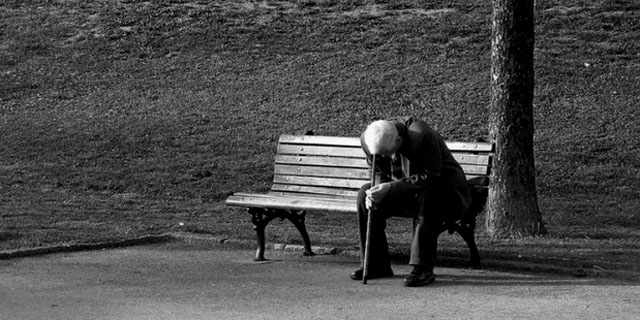Editorial: An age-integrated society
Reflections on social isolation and loneliness

The festive season is a time when colleagues, friends and families gather to celebrate and reflect on the year gone by. It can also be a time of great loneliness for more people than we like to imagine. The Age reports that “according to the Australian Red Cross Loneliness Survey, conducted in 2017, loneliness is a regular feature in the lives of one in four Australians or around 5.6M.” (11/12/17).
And as the Beatles so famously sang in the 1960s:
“All the lonely people
Where do they all come from?
All the lonely people
Where do they all belong?”
So where do all these lonely people come from and why are there more and more of them? Prior to the mid 1950s, extended families typically lived in the same town, suburb or home, and members of the older generation were an integral part of community and family life. However now, as working adults follow employment opportunities to geographically disparate locations, extended families have become less common. The internet and Skype, a continuously evolving and often uncertain economy, long working hours and the diminishing role of elders in the family are all contributing to this trend.
Over the past decades, single parent homes and those where both parents work have proliferated, as has the number of children in childcare. According to the Australian Bureau of Statistics, in 2016 in Australia, 89% of all children aged four years were enrolled in a preschool program of an average of 15 hours per week. At the same time, life expectancy has increased along with diseases such as dementia and other physical impairments linked to age. This has led to an increase in the demand for non-familial care services to meet the needs of the younger and older generations within families. There are also many children in today’s societies growing up without much interaction with older adults and many older adults isolated from the community and feeling useless, hopeless and lonely.
“Somehow we have to get older people back close to growing children if we are to restore a sense of community, a knowledge of the past, and a sense of the future.” Margaret Mead
In times gone by knowledge, skills, values, history and culture were transferred from generation to generation within the extended family. This was a two-way exchange between elders and children who in return provided contemporary social insights, technological skills, vitality and great joy. However, due to geographic disconnect and the impact of social, demographic and economic changes in today’s globalised world, learning is increasingly occurring outside the family. The UK government proposes that intergenerational learning and volunteering has a critical role to play with regard to “social cohesion, raising the achievement and aspirations of young people, developing a flexible, modern workforce and promoting civic engagement and citizenship”. It also has a great role to play in mitigating unnecessary social isolation and loneliness.
I’ve always been close to the elders in my family although as time goes by there are fewer and fewer of them. They have provided me with a sense of security, stability, fun and kindness in my life and I’m deeply appreciative of this. And those intergenerational get togethers are my favourites. I find myself conversing on a diverse range of unlikely topics with thoughtful and interesting people of all ages. So do spare a thought amid all of the festivities for those amongst us of any age who don’t feel that they belong anywhere or have anyone to share time with over the holiday season.
Many thanks to all of our contributors to this issue, and we wish you all the best for a happy, healthy and safe festive season. If you have any items to for the next issue, coming out in March 2018, please send them through.
Master of Ageing subjects due to run in Term 1 beginning on the 29th January are:
- Ageing and Society https://handbook.unimelb.edu.au/2018/subjects/poph90256
- Ageing, Health and Human Services https://handbook.unimelb.edu.au/2018/subjects/poph90267
- Shifting Paradigms in Ageing https://handbook.unimelb.edu.au/2018/subjects/poph90273
And for those who’d like to find out more about ageing but are time poor, we run a MOOC called ‘Rethinking Ageing, are we prepared to live longer?’ https://www.coursera.org/learn/ageing
[Source: Lena Gan, Course Coordinator Master of Ageing, Melbourne School of Population and Global Health, The University of Melbourne]